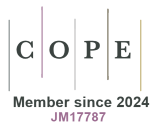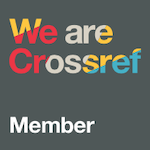Training needs and educational sources of European musculoskeletal specialists: learning outcomes of the IBSA International Academy – MSK Modules
DOI:
https://doi.org/10.33393/ao.2024.3150Keywords:
Continuing medical education, Musculoskeletal disorders, Post-doctoral trainingAbstract
Background: Building a meaningful training program for musculoskeletal (MSK) specialists is a major undertaking to improve the clinicians’ skills and ultimately patients’ outcome. The purpose of this study was to gather direct information from attendants of a training program called IBSA International Academy – MSK Modules on the perceived benefit of such initiative.
Methods: The IBSA International Academy has been developed during 2021 by IBSA’s Global Medical Affairs department with the involvement and support of an international faculty composed by experts in the field that has become the scientific Board of the Academy. More than 100 specialists from several European countries attended one or more modules focused on ultrasound (US) and US-guided infiltration and were asked to answer (a) a short survey just after the modules were completed and (b) a more detailed survey several weeks after their return to daily practice.
Results: A total of 114 specialists from 12 European countries attended the academy. The post-module evaluation form was completed by 94 (82.4%) and the follow-up survey by 30 (26.3%) participants. Response rate was highest for specialists from Nordic countries (50.0%) and lowest from Balkan countries (11.1%). The overall feedback of the participants to the academy was overwhelmingly positive both immediately and medium–long term after return to daily practice. About 57% of responders indicated mastering US and 30% indicated a better understanding of the anatomy as a key learning outcome of the academy. The added value of networking between peers and of direct contact with the experts in the faculty was mentioned by 77% and 53% respectively.
References
- Miller KJ, Kelly DM, Sheffer BW. Building a clinical skills program for orthopaedic trainees. J Pediatr Orthop Soc North Am. 2022;4-S1:517. DOI: https://doi.org/10.55275/JPOSNA-2022-0056 DOI: https://doi.org/10.55275/JPOSNA-2022-0056
- Logishetty K, Rudran B, Cobb JP. Virtual reality training improves trainee performance in total hip arthroplasty: a randomized controlled trial. Bone Joint J. 2019;101-B(12):1585-1592. DOI: https://doi.org/10.1302/0301-620x.101b12.bjj-2019-0643.r1. PMID: 31786991. DOI: https://doi.org/10.1302/0301-620X.101B12.BJJ-2019-0643.R1
- Cannon WD, Nicandri GT, Reinig K, Mevis H, Wittstein J. Evaluation of skill level between trainees and community orthopaedic surgeons using a virtual reality arthroscopic knee simulator. J Bone Joint Surg Am. 2014;2:96(7):e57. DOI: https://doi.org/10.2106/jbjs.m.00779. PMID: 24695934. DOI: https://doi.org/10.2106/JBJS.M.00779
- Oladeji LO, Ponce BA, Worley JR, Keeney JA. Mentorship in orthopedics: a national survey of orthopedic surgery residents. J Surg Educ. 2018;75(6):1606-1614. DOI: https://doi.org/10.1016/j.jsurg.2018.04.007. PMID: 29685787 DOI: https://doi.org/10.1016/j.jsurg.2018.04.007
- Ibsa International Academy MSK Modules.Online: https://ibsainternational.academy/. Accessed May 2024.
- Meyer VM, Benjamens S, Moumni ME, Lange JFM, Pol RA. Global overview of response rates in patient and health care professional surveys in surgery: a systematic review. Ann Surg. 2022;1:275(1):e75-e81. DOI: https://doi.org/10.1097/sla.0000000000004078. PMID: 32649458 DOI: https://doi.org/10.1097/SLA.0000000000004078
- Mulcahey MK, Waterman BR, Hart R, Daniels AH. The role of mentoring in the development of successful orthopaedic surgeons. J Am Acad Orthop Surg. 2018;26(13):463-471. DOI: https://doi.org/10.5435/jaaos-d-16-00665. PMID: 29847421 DOI: https://doi.org/10.5435/JAAOS-D-16-00665









